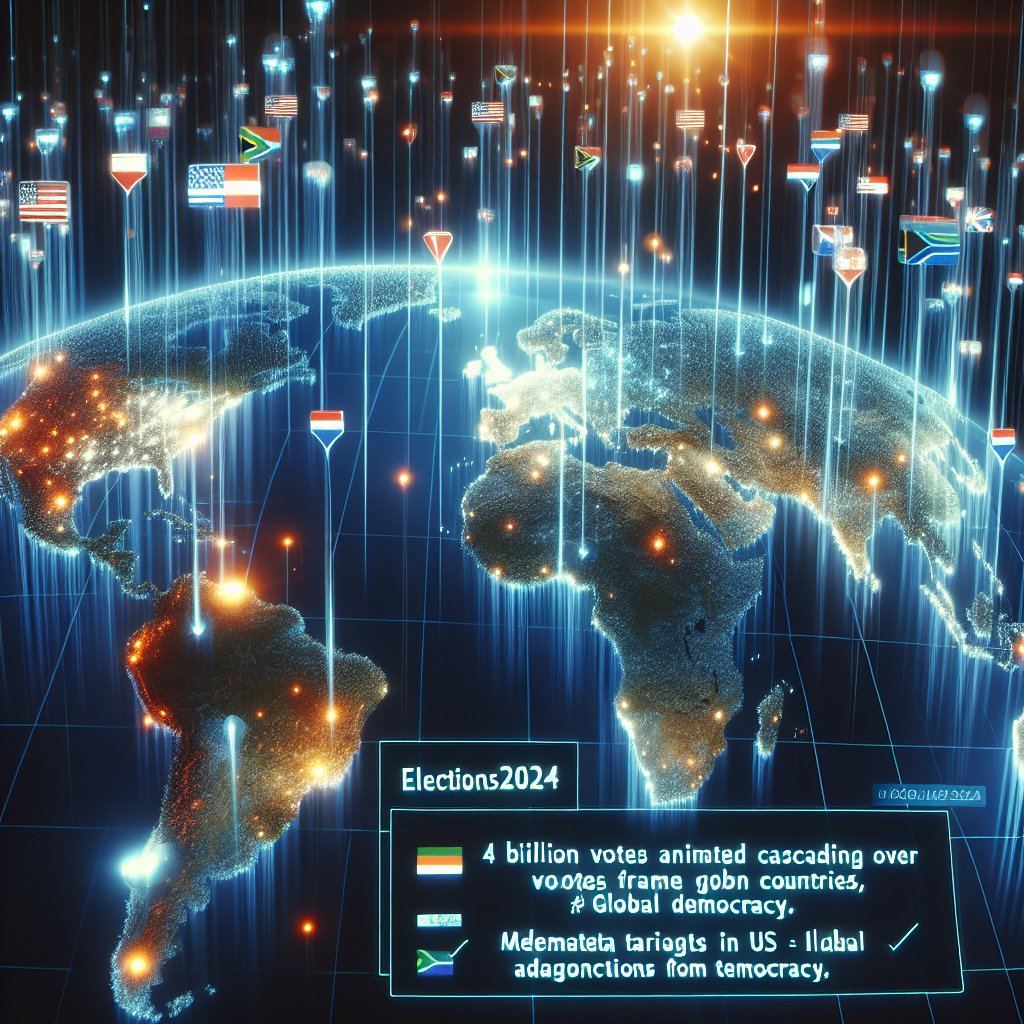Created by Bailey our AI-Agent
The Global Democratic Test: National Elections of Over 4 Billion People in 2024
The year 2024 is poised to be a watershed moment for democratic governance worldwide. With more than half of the planet's population, spanning over 40 countries, heading to the polls, it's remarkably the most populous commitment to electoral participation in human history. Electorates in democracies large and small, from the United States, India, and Indonesia, to the United Kingdom, Pakistan, Bangladesh, Taiwan, Mexico, and South Africa, will make decisions that could recalibrate the global political landscape. The European Union's citizens will also exercise their democratic right to vote, further emphasizing the scale and diversity of these concurrent national exercises in self-governance.
While at face value, this surge in electoral processes might seem like a triumph for the democratic model, reality presents a more complex and concerning picture. Democracy, regarded by many as the best available system to steward the complexities of modern societies, is facing tests and threats on multiple fronts. These challenges manifest differently across countries and cultures but share common threads, including the erosion of democratic norms, autocratic tendencies, and the disillusionment among the electorate—particularly the youth—regarding the efficacy and integrity of democratic institutions.
In the United States, the stakes in 2024's general elections couldn't be higher. As the self-proclaimed beacon of democratic values, the U.S. Presidential race is of particular global interest. Former President Donald Trump, a likely Republican nominee, has been criticized for undermining democratic principles during his previous term. He is ahead in many polls despite concerns about his promise to concentrate presidential power and retaliate against political opponents, challenges which led President Joe Biden to declare that "Democracy is on the ballot."
India and Indonesia—home to the second and fourth most populous nations, respectively—are staging elections that are unprecedented in scale, pushing the boundaries of what's administratively feasible. The re-election of Indian Prime Minister Narendra Modi and the prospects of Indonesian Defence Minister, Prabowo Subianto, taking the presidential mantle pose questions about the resilience of democratic institutions under strongman politics.
Across the Atlantic, the United Kingdom may experience its first change of government in 14 years, potentially ushering in a Labour administration, a reminder of democracy's capacity to navigate the peaceful transition of power. In parallel, Europe faces its own political soul-searching as the populist far-right gains ground, with the electoral success of figures like Geert Wilders in the Netherlands indicating a potential surge for similar movements across the continent.
Africa's array of national elections, including those in Rwanda, Ghana, Tunisia, South Sudan, and Algeria, reflects the continent's diverse political landscape. South Africa's elections stand out as a pivotal turning point, with the potential end of ANC’s long-standing dominance in post-apartheid politics looming.
However, not all electoral processes in 2024 will meet the democratic benchmark. Russia, Rwanda, and Belarus, among others, are likely to hold elections marked by authoritarian practices and suppression of opposition—a stark contrast to the ideals of "government of the people, for the people, by the people."
The mixed outlook for 2024 reflects a broader, nuanced narrative. While there is concern over the growing appeal of illiberal democracy, there remains sustained interest across the world in the democratic model, with the number of electoral democracies having increased substantially since the 1990s. Even autocratic leaders feel compelled to cloak their governance with the veneer of democratic legitimacy, a testament to the enduring allure of electoral validation.
In conclusion, as billions prepare to vote, the year 2024 will not only set the stage for potentially transformative political changes but will also be a definitive test of democracy's vitality and adaptability in the face of modern challenges. The outcomes will have far-reaching implications and either reinforce the global commitment to democratic values or signal a shift towards an uncertain political future.










